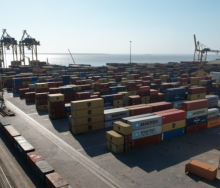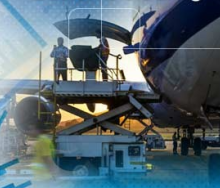The International Air Transport Association (Iata) has just released its IATA World Air Transport Statistics (WATS) publication with performance figures for 2020 demonstrating the devastating effects on global air transport during that year of the Covid-19 crisis.
While airfreight was the bright spot, passenger figures reveal the dire reality. 1.8 billion passengers flew in 2020, a decrease of 60.2% compared to the 4.5 billion who flew in 2019, while industry-wide air travel demand (measured in revenue passenger-kilometres, or RPKs) dropped by 65.9% year-on-year.
International passenger demand (RPKs) decreased by 75.6% compared to the previous year, while domestic air passenger demand (RPKs) dropped by 48.8% compared to 2019.
Total industry passenger revenues fell by 69% to $189 billion, and net losses amounted to $126.4 billion.
Airfreight fared a lot better as the market adapted to keep goods moving - including vaccines, personal protective equipment (PPE) and vital medical supplies - despite the massive drop in capacity from the bellies of passenger aircraft.
Industry-wide available cargo tonne-kilometres (ACTKs) fell 21.4% year-on-year in 2020, which led to a capacity crunch, with the industry-wide cargo load factor up 7.0 percentage points to 53.8%. This is the highest value in the Iata series started in 1990.
At the end of the year, industry-wide cargo tonne-kilometres (CTKs) had returned close to pre-crisis values. However, the yearly decline in cargo demand (CTKs) was still the largest since the Global Financial Crisis in 2009, at a sizeable 9.7% year-on-year.
· The top five airlines ranked by scheduled cargo tonne-kilometres (CTKs) flown were:
1. Federal Express (19.7 billion)
2. United Parcel Service (14.4 billion)
3. Qatar Airways (13.7 billion)
4. Emirates (9.6 billion)
5. Cathay Pacific Airways (8.1 billion)













